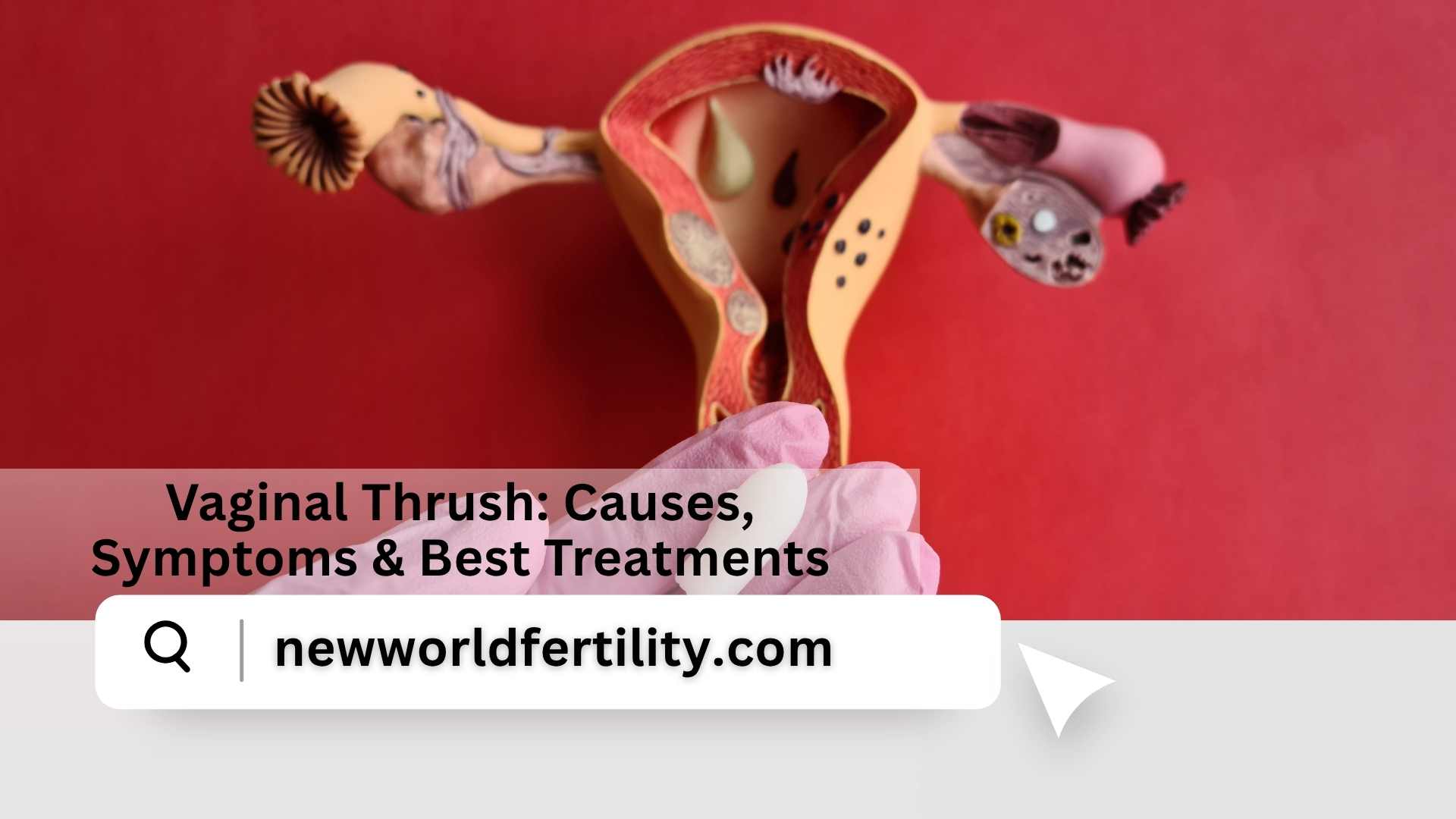Vaginal thrush, also known as vaginal yeast infection, is a common condition caused by an overgrowth of the Candida fungus. It leads to itching, irritation, and abnormal discharge, affecting millions of women worldwide. While not a serious health risk, recurrent thrush can cause discomfort and impact daily life. Understanding its causes, symptoms, and treatment options is essential for effective management. At New World Fertility, we provide expert guidance to maintain optimal vaginal and reproductive health.
What Causes Vaginal Thrush?
Vaginal thrush occurs when the natural balance of yeast and bacteria in the vagina is disrupted. Several factors contribute to this imbalance:
Antibiotics: Kill beneficial bacteria that keep yeast in check.
Hormonal Changes: Pregnancy, birth control pills, and menopause can increase yeast growth.
Diabetes: High blood sugar levels promote yeast overgrowth.
Weakened Immune System: Illnesses like HIV or treatments like chemotherapy can increase susceptibility.
Poor Hygiene & Tight Clothing: Moist environments encourage fungal growth.
Douching & Scented Products: Disrupt natural vaginal flora.
Common Symptoms of Vaginal Thrush
The symptoms of vaginal thrush can range from mild to severe, including:
Itching & Irritation: Persistent itching in the vaginal area.
Thick White Discharge: Cottage cheese-like, odorless vaginal discharge.
Redness & Swelling: Inflammation of the vulva and vaginal walls.
Burning Sensation: Pain or discomfort during urination or intercourse.
Cracked or Dry Skin: Some women may experience skin peeling around the vagina.
If you experience these symptoms frequently, visit New World Fertility for a proper diagnosis and treatment.
How Is Vaginal Thrush Diagnosed?
A physical examination and lab tests help confirm vaginal thrush. Your doctor may:
Review Symptoms: Discuss your medical history and recurrent infections.
Pelvic Exam: Check for signs of infection.
Swab Test: A sample from the vaginal discharge is tested to identify the Candida strain.
Best Treatments for Vaginal Thrush
The treatment for vaginal thrush depends on severity and frequency of infections.
1. Antifungal Medications
Topical Creams & Suppositories: Clotrimazole, Miconazole, and Nystatin.
Oral Antifungal Pills: Fluconazole (single-dose) for severe cases.
Probiotics: Lactobacillus supplements help maintain healthy vaginal flora.
2. Home Remedies for Relief
Yogurt & Probiotics: Restores natural bacterial balance.
Coconut Oil: Has antifungal properties to soothe irritation.
Tea Tree Oil: Diluted form can reduce fungal growth (consult doctor first).
Apple Cider Vinegar Baths: Helps restore vaginal pH balance.
3. Lifestyle Changes to Prevent Thrush
Wear Cotton Underwear: Keeps the vaginal area dry.
Avoid Scented Feminine Products: These can disrupt pH levels.
Control Blood Sugar: Managing diabetes reduces yeast infections.
Practice Safe Sex: Reduces risk of infections.
When to See a Doctor?
Seek medical advice if:
Symptoms persist despite treatment.
You have recurrent vaginal thrush (more than 4 times a year).
You experience severe pain, fever, or unusual discharge.
You’re pregnant and have symptoms of thrush.
At New World Fertility, our experts provide personalized treatment plans to prevent and manage vaginal thrush effectively.
FAQs About Vaginal Thrush
1. Can vaginal thrush go away on its own?
Mild cases may resolve without treatment, but antifungal medications speed up recovery.
2. Can men get thrush from a partner?
Yes, thrush can spread through sexual contact, causing penile yeast infections in men.
3. How long does thrush take to heal?
With treatment, symptoms usually improve within 3-7 days.
4. Can diet affect vaginal thrush?
Yes, reducing sugar intake and eating probiotic-rich foods can help prevent infections.
5. Is vaginal thrush a sign of an STD?
No, vaginal thrush is not a sexually transmitted disease, but it can be triggered by sexual activity.
Conclusion
Vaginal thrush is a common but manageable condition. Understanding its causes, symptoms, and treatment options can help prevent recurrent infections. At New World Fertility, we offer expert gynecological care and fertility solutions to maintain optimal vaginal health. If you're experiencing recurrent thrush or need professional advice, book a consultation with our specialists today!

 Oct-29-2025
Oct-29-2025